
Prof. Paulo Batista, University of Évora, Portugal
Biography: Current director of the Arquivo Nacional Torre do Tombo, he was senior technician positions at the Instituto de Arquivos Nacionais/Torre do Tombo, Instituto Português do Património Cultural and the Instituto Português do Património Arquitetónico. He has also worked as researcher at the Instituto de Investigação Científica Tropical – Centro de Estudos de História e Cartografia Antiga, and as professor at the MS program in Information Science and Documentation at Universidade NOVA de Lisboa (UNL).
Paulo Batista holds a Post-Doctorate in Architecture and Urban Planning (University of Brasília, Brazil), a Ph.D. in Documentation (University of Alcalá, Madrid-UAH, Spain), an MS in Information Science and Documentation - Archival Studies (UNL), and an MA in Documentation (UAH). As part of his doctorate, he also received a Diploma of Advanced Studies in Bibliography and Documentation Retrospective in Humanities (UAH), and he also holds a postgraduate degree in Information Society Law (University of Lisbon) and Information and Documentation Science - Librarianship and Archival Studies (UNL), and a specialization in Good Practices in Patrimonial Management (UNL) and Information Science and Documentation - Archival Studies (UNL). He holds an undergraduate degree in History (University of Lisbon).
Paulo Batista is integrated researcher at CIDEHUS – Interdisciplinary Center for History, Cultures and Societies of the University of Évora, Portugal, where he coordinated, between 2022 and 2025, the research group 2: Heritage and Literacie(s), and professor at the Autonomous University of Lisbon, where is coordinator and professor of the Postgraduate in Promotion and Cultural and Educational Dynamization of Archives and Libraries, and the Postgraduate in Architectural Archives.
He is also a Corresponding Academician of the Portuguese Academy of History (2023-), and secretary of the Executive Committee of the Architecture Archives Section of the International Council on Archives (2022-).
He is the author of several books and numerous articles published in national and international journals and conference proceedings.
He was also keynote speaker and invited speaker at various international conferences (Portugal, Algeria, Argentina, Belgium, Brazil, China, Ecuador, Egypt, England, Fiji, France, India, South Africa, Thailand, Türkiye and South Korea).
More informations: https://www.cienciavitae.pt//0618-CE7B-7145
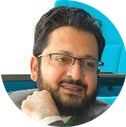
Prof. Ghulam Abbas, GIK Institute of Engineering Sciences and Technology, Pakistan
Biography: GHULAM ABBAS received his B.S. degree in Computer Science (1998–2002) from Edwardes College, University of Peshawar. He earned both his M.S. in Distributed Systems (2003–2005) and Ph.D. in Computer Science (2006–2010) from the University of Liverpool, England. Dr. Abbas joined GIK Institute as an Assistant Professor in 2011 and has been a full Professor and Head of the Department of Cybersecurity and Software Engineering since 2023. Previously, he was with Liverpool Hope University, England, as a Research Assistant (2006–2009) and Project Coordinator (2009–2010) for a knowledge transfer project funded by the Higher Education Funding Council for England. He also served as a Seminar Tutor (2010–2011) at Liverpool Hope University, and as a Lecturer (2005–2006) at Edwardes College, Peshawar. Dr. Abbas has authored over 150 research publications with a cumulative impact factor of over 400 and has received several prestigious research awards. He has supervised numerous MS and PhD students and final-year projects, some of which have had a significant impact in the field. He is a co-founding member of the Telecommunications and Networking (TeleCoN) Research Center at GIK Institute. Dr. Abbas serves as a member of editorial boards and a reviewer for leading journals in his field. Additionally, he has been a member of organizing and technical program committees for several highly ranked international conferences. In recognition of his professional standing, Dr. Abbas was elected as Fellow of the Institute of Science & Technology, UK, Fellow of the British Computer Society, and Senior Member of IEEE. He is ranked among the World’s Top 2% Scientists by Stanford University & Elsevier. His research interests include computer networks, wireless and mobile communications, IoT, mobile edge and fog computing, and cybersecurity.
Web: www.giki.edu.pk/abbas
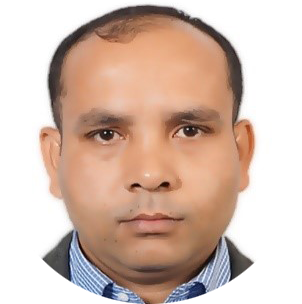
Prof. Moirangthem Marjit Singh, North Eastern Regional Institute of Science & Technology, India
Biography: Prof. (Dr.) Moirangthem Marjit Singh received B.Tech. & M.Tech. degrees from NERIST and PhD degree from University of Kalyani, India in 2001,2010 and 2017 respectively. Dr. Singh currently a Professor in Computer Science & Engineering Department at North Eastern Regional Institute of Science & Technology (NERIST), India. He held positions of the Head Computer Science & Engineering, NERIST (2018 – 2022), founder Honorary Joint Secretary of the IE(I), APSC, India (2019-2021) and founder member UBA NERIST Cell (2017-2024). Currently, he is In-charge of Educational Technology Cell at NERIST, Chief Information Security Officer (CISO) NERIST. He is a Fellow of IETE India, Fellow of IE (I) and senior member IEEE, USA. He is an Editor of IETE- Journal of Research published by Taylor & Francis.
Prof. Singh received awards namely “Academic Excellence Award” from Taylor’s University, Malaysia (2023), “IE(I) Young Engineers Award 2014–2015” in Computer Engineering Division from IEI. He also received the “Best Paper Awards” at conferences ICEAI 2023(Taylors’ University, Malaysia), SETSM 2025(Hanoi University of Industry, Vietnam) the ICACCT 2016, (APIIT, India) and Best Paper Award 1st Runner-Up in ICDAI2024(TINT, India). He received the “Best Presenter Certificate” during Gen-CITy 2025(UNDIKNAS University, Bali). He has a patent granted for 20 years by the Patents office Govt. of India (Patent Number:542853). His research interests include MaNet, WSN, Security, ML, DL and Image Classification.
Prof. Marjit did his schooling at JNVSA Kakching, Thoubal District, Manipur (1990-1997). He secured First Position in X and Second Position in XII Examinations conducted by CBSE, New Delhi, India, amongst the candidates sent up from Jawahar Navodaya Vidyalayas (JNVs) of North Eastern region states of India, in 1995 and 1997 respectively. He was Gold Medallist in the M.Tech.(CSE) program too.
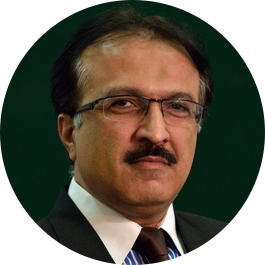
Assoc Prof. Abdul Zahid Khan, International Islamic University Islamabad, Pakistan
Biography: Dr. Abdul Zahid Khan is an Associate
Professor and Chairman of the Department of Technology & Project Management at
the Faculty of Management Sciences, International Islamic University Islamabad
(IIUI). With more than two decades of academic and administrative experience,
he has played a pivotal role in advancing research and teaching in the fields
of information systems, enterprise resource planning (ERP), knowledge
management, and organizational transformation.
He has served as a National
Expert from Pakistan in the Asian Productivity Organization (APO) project on
Emerging Trends and Technologies, contributing to regional dialogues on
innovation and productivity. Dr. Khan is also a member of the national task
force responsible for formulating Pakistan’s Artificial Intelligence Policy,
reflecting his commitment to shaping the country’s digital future.
Dr. Khan’s scholarly
work is widely cited, with publications indexed in Web of Science and Google
Scholar, and joint research with scholars of prestigious institutions such as
University Paris-Saclay, UET Taxila, and Air University Islamabad. His
research contributions span ICT adoption, ERP implementation challenges, and
project management practices.
In addition to his academic achievements, Dr.
Khan holds industrial certifications including SAP FI/CO and CCAI-Cisco,
alongside numerous certifications and courses from international bodies, as
highlighted in his LinkedIn profile. These credentials strengthen his ability
to bridge academia and industry, ensuring practical relevance in his teaching
and research.
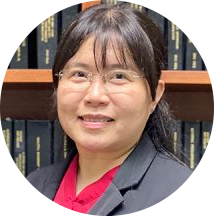
Asso. Prof. Ts. Dr. Teoh Ai Ping, Universiti Sains Malaysia, Malaysia
Biography: Ai Ping is the Deputy Dean (Research, Innovation, Industry and
Community Engagement) at the Graduate School of Business, Universiti Sains
Malaysia, and an Accredited Trainer with extensive experience in executive
education and professional training. She holds a Invited Talk Title.
Smart
Health and Smart Ecosystems Using AI: Engineering Sensor–AI Systems from
Telemedicine and Kidney Injury Detection to Brain–Computer Interfaces, Cancer
Diagnostics, Fisheries, and Safety Modeling.
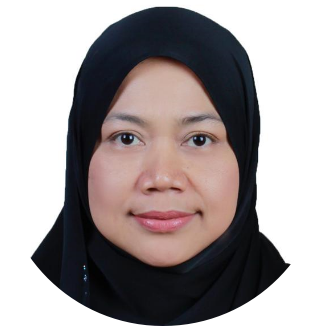
Assoc. Prof. Rohaya Binti Latip, Universiti Putra Malaysia, Malaysia
Biography: Dr. Rohaya Latip is an Associate Professor in the Department of
Communication Technology and Network at the Faculty of Computer Science and
Information Technology, Universiti Putra Malaysia (UPM). She earned her Ph.D.
in Distributed Databases and Master of Science in Distributed Systems from
UPM, and a Bachelor of Computer Science from Universiti Teknologi Malaysia
(UTM), building a strong academic foundation in large-scale and distributed
computing systems.
She currently leads the Network, Parallel and
Distributed Computing (NPDC) Research Group at UPM, driving research
excellence in advanced computing infrastructures. Previously, she served as
Head of the Department of Communication Technology and Network from 2017 to
2022. Her academic leadership also extends internationally, having been
appointed as a Visiting Professor at L.N. Gumilyov Eurasian National
University, Astana, Kazakhstan, in September 2023 and November 2025, and as a
Visiting Academic at Monash University, Melbourne, Australia, from January to
July 2024. Earlier in her career, she held the position of Associate Professor
at Najran University, Kingdom of Saudi Arabia (2012–2013).
At UPM, Dr.
Rohaya previously led the High-Performance Computing (HPC) Section
(2011–2012), where she played a key role in the Campus Grid Project and the
development of wireless network infrastructure for campus hostels,
contributing to the university’s digital transformation initiatives.
Beyond
teaching and research, Dr. Rohaya actively contributes to the global research
community. She serves as Editorial Manager for Internet of Things (Elsevier)
and is a member of the Springer Nature Editorial Board. Her research interests
span Big Data analytics, Cloud, Fog and Edge Computing, Network Management,
and Distributed Databases. She has authored and co-authored over 148 scholarly
publications, including high-impact journal articles, conference papers, and
technical reports.

Asst. Prof. Randall DURAN, Singapore Management University, Singapore
Biography: Randall E. Duran is a Senior Lecturer of Information Systems at Singapore Management University (SMU), where he leads the undergraduate Financial Technology program and teaches courses in Fintech and AI applications in financial services. Randall holds degrees in computer science from the Massachusetts Institute of Technology (MIT). He spent more than three decades working with financial institutions. Randall was CEO of Catena Technologies, a Fintech company he founded that was acquired by S&P Global. He also served as Chief Information Officer at 1st Financial Bank USA. Randall is the author of the textbook "Financial Services Technology: TradFi, Fintech, and DeFi" and co-author of "Regulation of Fintech in Asia-Pacific". He currently serves as an advisor and collaborator in both corporate and government sectors.
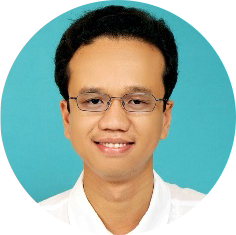
Prof. Loc Nguyen, Sunflower Soft Company, Vietnam
Biography: Loc Nguyen is an independent scholar from 2017. He holds Master degree in Computer Science from University of Science, Vietnam in 2005. He holds PhD degree in Computer Science and Education at Ho Chi Minh University of Science in 2009. His PhD dissertation was honored by World Engineering Education Forum (WEEF) and awarded by Standard Scientific Research and Essays as excellent PhD dissertation in 2014. He holds Postdoctoral degree in Computer Science from 2013, certified by Institute for Systems and Technologies of Information, Control and Communication (INSTICC) by 2015. Now he is interested in poetry, computer science, statistics, mathematics, education, and medicine. He serves as reviewer, editor, speaker, and lecturer in a wide range of international journals and conferences from 2014. He is volunteer of Statistics Without Borders from 2015. He was granted as Mathematician by London Mathematical Society for Postdoctoral research in Mathematics from 2016. He is awarded as Professor by Scientific Advances and Science Publishing Group from 2016. He was awarded Doctorate of Statistical Medicine by Ho Chi Minh City Society for Reproductive Medicine (HOSREM) from 2016. He was awarded and glorified as contributive scientist by International Cross-cultural Exchange and Professional Development-Thailand (ICEPD-Thailand) from 2021 and by Eudoxia Research University USA (ERU) and Eudoxia Research Centre India (ERC) from 2022. He has published 101 papers and preprints in journals, books, conference proceedings, and preprint services. He is author of 5 scientific books. He is author and creator of 10 scientific and technological products.
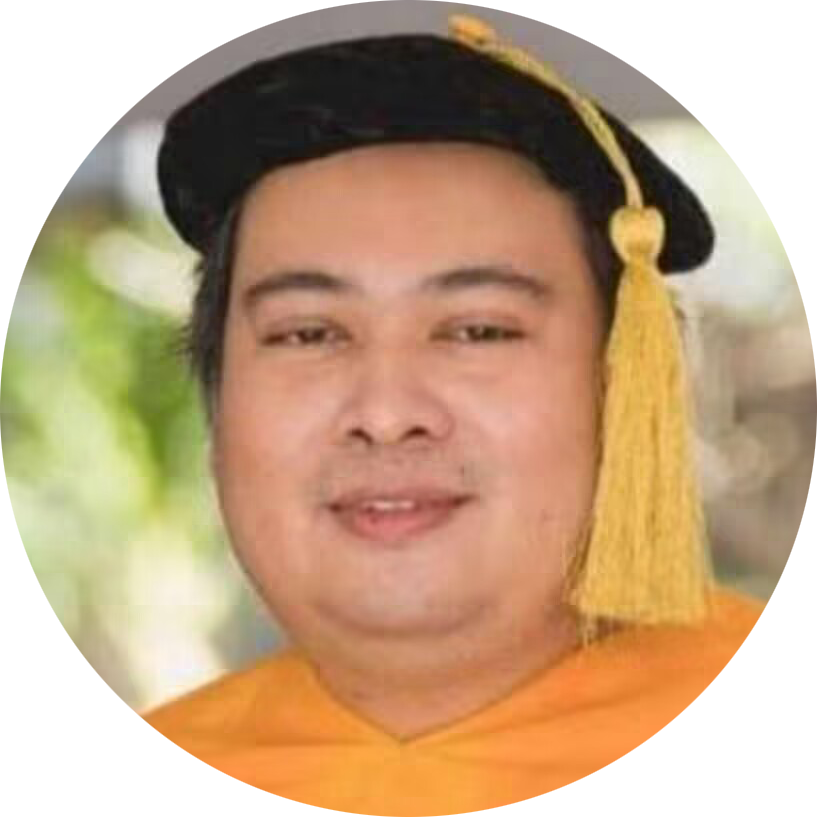
Asst. Prof. Chavis Srichan, Khon Kaen University, Thailand
Speech Title: Smart Health and Smart Ecosystems Using
AI: Engineering Sensor–AI Systems from Telemedicine and
Kidney Injury Detection to Brain–Computer Interfaces,
Cancer Diagnostics, Fisheries, and Safety Modeling
Abstract: This invited talk presents an integrated AI
engineering perspective on interdisciplinary research that
combines artificial intelligence, sensor technologies, and
computational modeling into scalable cyber–physical
intelligence systems for healthcare, environmental
sustainability, and safety-critical applications.
In smart health, the talk highlights AI-enabled
telemedicine health kiosks that integrate non-invasive
physiological sensors with machine learning and
time-series prediction models for screening and long-term
management of non-communicable diseases. This includes
electrochemical biosensing for early acute kidney injury
(AKI) detection, where nanostructured electrodes are used
to detect NGAL biomarkers and AI models enhance
sensitivity, robustness, and real-time decision support.
The presentation further covers AI-assisted
brain–computer interfaces (BCI) based on fNIRS and hybrid
EEG–fNIRS sensing, enabling cognitive-state monitoring,
assistive communication, and adaptive human–machine
interaction. In biomedical diagnostics, AI-enhanced SERS
nano-biosensing for early cholangiocarcinoma (CCA) cancer
detection is discussed, where advanced signal processing
and deep learning transform complex Raman spectra into
reliable point-of-care diagnostic outcomes.
Beyond
healthcare, the talk extends to AI for smart fisheries and
environmental monitoring, using edge-AI computer vision
and sensor fusion for real-time fish species recognition,
catch analytics, and water-quality assessment to support
sustainable resource management. The talk also introduces
computational modeling related to Sudden Unexplained
Nocturnal Death Syndrome (SUNDS), employing
differential-equation models of cardiac cellular energy
dynamics and outlining future opportunities for
AI-assisted risk monitoring using wearable physiological
sensing.
Overall, the talk positions AI as an
engineering backbone connecting sensors, communication
systems, and intelligent decision-making across health,
environment, and safety domains, aligning closely with the
scope of computer communication and information systems at
CCCIS 2026.
Doctor of Business Administration, a Master
of Science in Information Technology, and a Bachelor of
Accountancy (Honours). Her professional credentials
include Professional Technologist in Cybersecurity
Technology and Certifications in Risk, Compliance, and
Cyber Risk Management. With prior industry experience in
ERP and ERM consultancy, she actively supervises
postgraduate students and contributes as a programme
assessor, reviewer, keynote speaker, visiting professor,
and lead consultant in governance, ESG, risk management,
and digital technologies.
Biography: Chavis Srichan
is an Assistant Professor in the Department of Computer
Engineering at Khon Kaen University, Thailand. He received
his Bachelor of Engineering (B.Eng.) in Computer
Engineering from Khon Kaen University, a Master’s degree
from Hamburg University of Technology, and a Doctor of
Engineering (D.Eng.) from the Asian Institute of
Technology. His research focuses on the integration of
artificial intelligence with sensor technologies and
cyber–physical systems for real-world impact. His
interdisciplinary work spans smart health and telemedicine
systems, AI-assisted biosensing (including kidney injury
and cancer diagnostics), brain–computer interfaces using
fNIRS and EEG, intelligent fisheries and environmental
monitoring, and computational modeling for safety-critical
health conditions. His research has been supported by
national and international programs and emphasizes
deployable, scalable technologies that benefit society and
the environment.
Invited Speakers of CCCIS2025 | ||||||
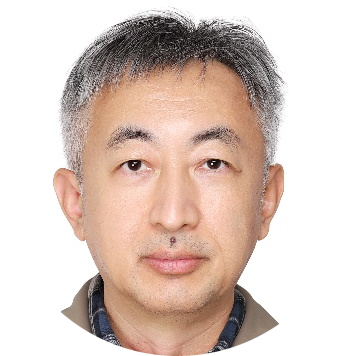 |
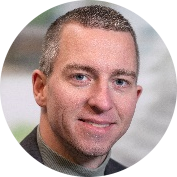 |
 |
 |
|||
| Prof. Hong Lin |
Prof. Koen Smi |
Prof. Ghulam Abbas |
Prof. Paulo Batista |
|||
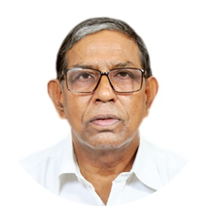 |
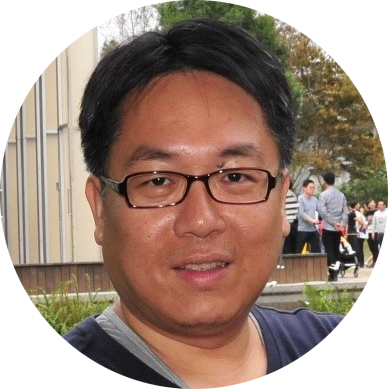 |
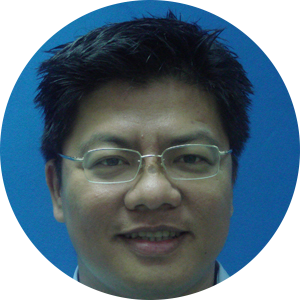 |
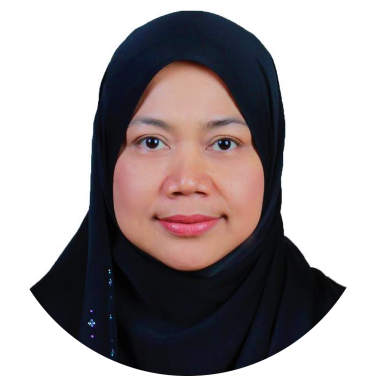 |
|||
Prof. Jyotsna Kumar Mandal |
Prof. Chuan-Ming Liu |
Prof. Yingwah Teh |
Assoc. Prof. Rohaya Binti Latip |
|||
 |
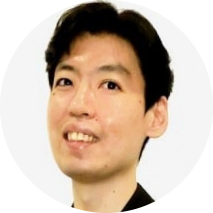 |
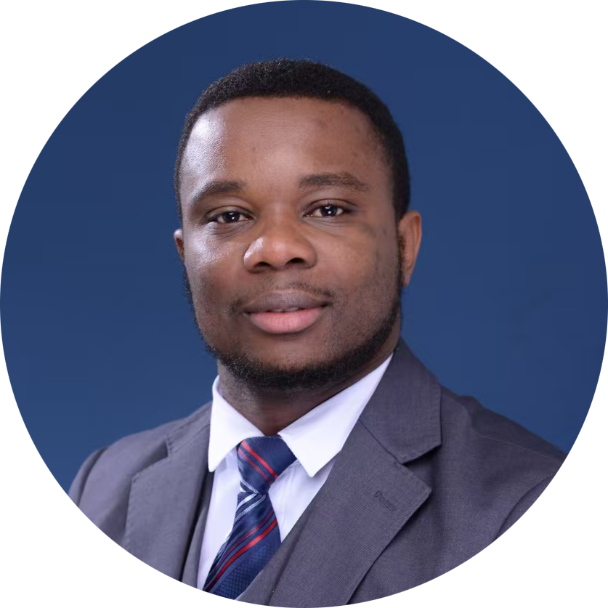 |
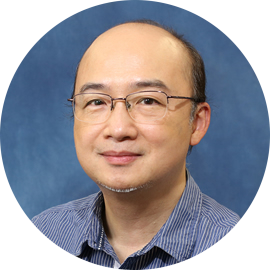 |
|||
Assoc. Prof. Teoh Ai Ping |
Assoc. Prof. Tze Wei Liew |
Dr. Chiagoziem Chima Ukwuoma |
Jackey Cheung |
|||
